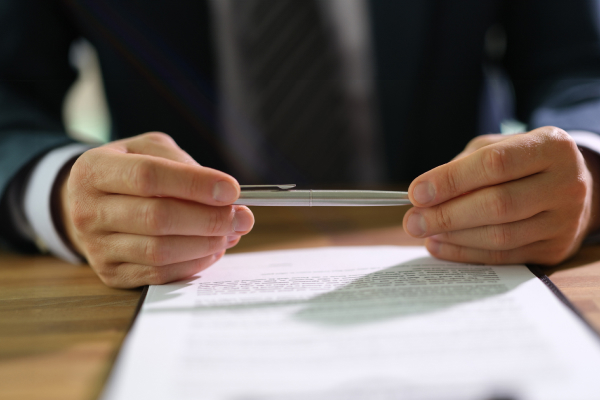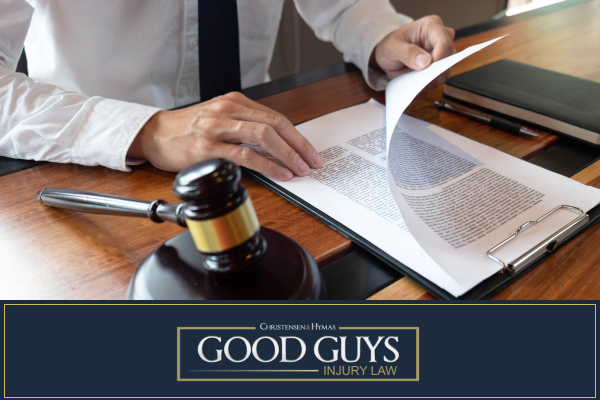
A car accident can lead to unexpected medical bills, lost income, and expensive vehicle repair. Many families struggle to pay these costs, especially when injuries prevent them from working. Finding financial help after a crash can ease the burden and allow victims to focus on recovery.
Good Guys Injury Law helps accident victims secure compensation for their losses. Depending on the situation, financial help may come from car insurance, government programs, or legal funding options. Some programs offer immediate relief, while others provide long-term support. The right choice depends on the severity of the accident and the victim’s financial situation.
If you or a loved one were injured in a crash, you have options. We will explain the different ways to find financial relief. Knowing where to look can help cover medical expenses, replace lost wages, and support your recovery.
Table of Contents
Insurance Coverage Options for Financial Assistance
Many accident victims rely on car insurance to cover medical bills, lost income, and vehicle repair costs. Different types of insurance coverage can help, depending on the details of the accident. Some policies pay for immediate expenses, while others require an investigation before covering damages.
If the insurance company of the at-fault driver does not provide enough compensation, you may have other options. Below are common types of insurance coverage that can help after a car accident.
Personal Injury Protection (PIP) or Medical Payments (MedPay)
Personal Injury Protection (PIP) and Medical Payments (MedPay) coverage help pay for medical expenses after a crash. These policies cover medical treatment, hospital visits, and rehabilitation costs.
PIP is required in some states and covers more than just medical bills. It may also pay for lost wages and daily expenses like food or transportation. MedPay is optional but helps cover emergency care and other immediate costs.
Unlike liability insurance, PIP and MedPay cover injuries no matter who caused the accident. This means accident victims do not have to wait for the insurance company to decide fault before getting help. These coverages can be a lifeline for those facing high medical costs.
Uninsured/Underinsured Motorist (UM/UIM) Coverage
If the at-fault driver does not have car insurance, uninsured motorist (UM) coverage can help. If the other driver does not have enough insurance coverage, underinsured motorist (UIM) coverage can fill the gap.
These policies cover medical expenses, lost wages, and sometimes vehicle repair costs. If the insurance company of the at-fault driver denies responsibility, UM and UIM coverage can provide compensation.
Filing an insurance claim under UM or UIM policies requires proof that the at-fault driver had little or no car insurance. A police report, witness statements, and medical bills can help support the claim.
Collision Coverage
Collision coverage pays for vehicle repair or replacement after an accident, regardless of fault. This type of car insurance is optional but can be useful when dealing with an at-fault driver who lacks proper insurance coverage.
Unlike liability insurance, collision coverage does not cover medical bills or lost wages. Instead, it helps accident victims pay for car repairs without waiting for a third-party insurance company to accept responsibility.
While collision coverage can be helpful, it usually requires a deductible. This means accident victims must pay a portion of the vehicle repair costs before their insurance company covers the rest.
Liability Insurance from the At-Fault Driver
If the at-fault driver has liability insurance, their insurance company should cover damages. This includes medical bills, vehicle repair costs, and sometimes lost wages. However, not all policies provide enough insurance coverage to cover all damages.
Filing an insurance claim with the at-fault party’s insurer requires proof of responsibility. Police reports, photos from the accident scene, and medical records help strengthen a claim. If the insurance company denies the claim or offers too little compensation, legal action may be necessary.
Government and Public Assistance Programs

Not everyone has enough car insurance to cover all costs after a car accident. Some people do not have any insurance coverage at all. Some options that may help after a crash include:
State Disability Insurance (SDI)
Some states offer State Disability Insurance (SDI) to help injured workers. If a person cannot work because of a car accident, SDI may provide payments for lost income. SDI is different from workers’ compensation. It covers injuries that happen outside of work.
To qualify, a person must have worked recently and paid into the program. The amount of money received depends on how much the person earned before the injury. People who apply for SDI must show proof of injury. This usually includes doctor’s notes, medical bills, and other documents. The payments are not permanent, but they can help while a person recovers.
Medicaid and Medicare
For people who do not have health insurance, government programs like Medicaid and Medicare may help. These programs pay for medical expenses, hospital stays, and some long-term care. Medicaid is for low-income individuals and families.
It covers doctor visits, medical treatment, and some rehabilitation services. Medicare is for people over 65 or those with certain disabilities. It helps pay for medical bills and hospital care. People who qualify must apply through their state’s health insurance office. Approval depends on income, age, and health conditions. These programs can be helpful for those facing high medical costs.
Workers’ Compensation (If Injured on the Job)
If a person is in a car accident while working, they may qualify for workers’ compensation. This program helps injured workers by covering medical expenses and lost wages. Workers’ compensation is available to most employees.
To receive benefits, a person must report the injury to their employer. The employer’s insurance company will then review the claim. If approved, the worker will get payments for their medical treatment and lost wages. Unlike other insurance claims, workers’ compensation does not require proof that someone else caused the accident. Even if the injured person was at fault, they may still receive benefits.
Social Security Disability Insurance (SSDI)
For people with serious injuries, Social Security Disability Insurance (SSDI) may provide long-term support. This program helps people who cannot work because of a disability. To qualify, a person must have worked in the past and paid into Social Security.
They must also prove that their injuries prevent them from working for at least one year. This often requires doctor’s reports, test results, and proof of ongoing medical treatment. SSDI payments are based on how much a person earned before their injury. Some people also qualify for Medicare after receiving SSDI for a certain period.
Applying for SSDI can take time, and many people are denied at first. A lawyer can help improve the chances of approval.
Legal and Financial Assistance Programs

Not everyone has savings or insurance coverage to handle the costs of a car accident. Medical care, lost wages, and vehicle repair can be expensive. For those struggling financially, legal and financial aid programs may help. Some offer cash advances, while others provide free legal help.
These options can be useful while waiting for a settlement. Some ways accident victims can get financial assistance are:
Lawsuit Loans (Pre-Settlement Funding)
For accident victims waiting on a personal injury claim, pre-settlement loans can provide money upfront. These loans help pay for medical bills, living expenses, and daily needs like food. The money is repaid after the case settles.
Unlike regular loans, pre-settlement loans do not require monthly payments. If the case is lost, the borrower does not have to repay the loan. However, interest rates can be high, so it is important to consider all options before applying.
Many legal funding companies offer financial assistance on a case-by-case basis. Approval depends on the strength of the case. A lawyer can help review these options and ensure the terms are fair.
Free Legal Aid for Low-Income Individuals
Legal help can be expensive. Some accident victims cannot afford an attorney but still need legal representation to file a personal injury claim. Free legal aid programs help those who qualify by providing free or low-cost services.
Many non-profit organizations and law firms support victims by handling insurance claims, negotiating settlements, or representing clients in court. The availability of free legal aid depends on income, case details, and location. Some organizations only help with certain types of cases.
To find free legal services, accident victims can check with local bar associations, legal aid clinics, or state-funded programs. A lawyer can also provide guidance on finding the right resources.
Crime Victim Compensation Programs
If a car accident is caused by a criminal act, such as a hit-and-run or reckless driving, victims may qualify for crime victim compensation programs. These programs help pay for medical expenses, lost wages, and other accident-related costs.
Each state has different rules for crime victim compensation. Most programs require a police report and proof that the victim cooperated with law enforcement. Compensation is usually limited and does not cover property damage.
Unlike insurance claims, crime victim compensation does not depend on proving the at-fault party has car insurance. Instead, it provides direct financial relief to victims. These programs can help accident victims recover some of their losses, even if the other driver cannot pay.
FAQs
1. What financial assistance is available after a car accident?
There are several options for financial help after a car accident. Car insurance may cover medical expenses, lost wages, and vehicle repair costs. Government programs like Medicaid, State Disability Insurance (SDI), and Social Security Disability Insurance (SSDI) can also provide aid.
2. Can the local community provide financial help after an accident?
Yes, the local community can be a great resource for accident victims. Organizations like United Way offer financial assistance programs, including rent relief, food assistance, and medical bill support.
3. How long does it take to receive financial assistance?
The time frame depends on the type of aid. Insurance claims can take weeks or months, depending on how quickly the insurance company processes them. Government programs like Medicaid or SSDI may take longer, sometimes several months.
4. What if the at-fault driver has no insurance?
If the at-fault driver does not have car insurance, accident victims may rely on uninsured/underinsured motorist (UM/UIM) coverage if they have it. Other options include personal injury protection (PIP), MedPay, and legal action against the at-fault party.
5. Should I hire a lawyer to help with financial assistance?
A personal injury lawyer can help accident victims apply for financial aid, file insurance claims, and negotiate with the insurance company. If a claim is denied or a settlement is too low, an attorney can fight for better compensation.
Contact Our Car Accident Lawyer for a Free Consultation

If you or a loved one were injured in a car accident, you may need financial assistance. Medical bills, lost income, and vehicle repair costs can add up quickly. Without the right help, many families struggle to recover from an accident.
Good Guys Injury Law helps accident victims explore all available options. Whether filing an insurance claim, applying for government aid, or seeking pre-settlement loans, we guide our clients every step of the way. Our attorneys work with insurance companies to secure fair compensation and ensure our clients receive the support they need.
Do not wait to get the financial help you deserve. Contact us today for a free consultation. We will review your case and discuss your best options for securing the assistance you need.
